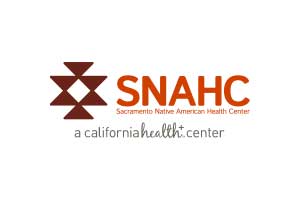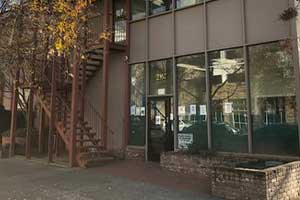Skip To Rehab Listing
Alcohol and Drug Treatment Service Settings and Modalities
A number of addictive drugs are readily attainable within the West Sacramento area, such as: cocaine, alcohol, marijuana, and heroin.
The motives that individuals start using addictive drugs differs. Often, what those who become addicted to drugs and alcohol have in common is an inability to overcome their reliance upon these addictive substances by themselves.
For these individuals, West Sacramento provides a number of different rehabilitation programs so clients can search out one in a suitable location such as: long term treatment facilities, short term rehab programs, intensive outpatient treatment, inpatient addiction treatment centers, outpatient detox programs.
These rehabs use a range of methods, ranging from long-established approaches to newer methods, in order to provide individuals with a successful evidence-based path to lasting recovery. These approaches may include: vocational rehabilitation services, group therapy, trauma therapy, anger management, trauma-related counseling, brief intervention approach.
Special Programs for Addiction Treatment
Since alcohol and drug addiction affects every individual differently, nearby rehabilitation programs provide unique resources including child care for clients children, social skills development, persons with eating disorders, persons who have experienced sexual abuse, active duty military, residential beds for client's children to help match a client's recovery to their individual needs.
Individuals dealing with drug and alcohol abuse can get guidance in choosing the appropriate treatment for their needs by reaching out to any of the area's rehabilitation programs.
Addiction Treatment Program Payment Alternatives
Financing should not be an obstacle to treatment for individuals struggling with addiction. That is why local treatment centers offer multiple payment alternatives, such as cash or self-payment, private insurance, medicare, medicaid, payment assistance, state welfare or child and family services funds, county or local government funds, to help clients' distinct economic situation.
People who are seeking alcohol and drug rehab can find a facility, program, approach, and payment option within the West Sacramento region that will guide them to beat their drug and alcohol dependency and get back to the life they want to live.
Commonly Asked Questions about Addiction and Treatment
Does Medicaid pay for a person to go to a drug rehab?
Yes, Medicaid, the U.S. government's health insurance program for individuals with low income, does cover substance use disorder services, including drug rehabilitation. However, the specific services covered and the extent of coverage can vary from state to state, as Medicaid is a joint federal and state program.
Commonly, Medicaid coverage can include services such as:
Screening and assessment: This helps to determine the level of addiction and the most suitable treatment plan.
Outpatient counseling: This can include individual therapy, group therapy, and family therapy.
Inpatient care: This includes residential treatment programs where individuals receive intensive care, usually for severe addictions.
Medication-assisted treatment: Medications can be used to help manage withdrawal symptoms, reduce cravings, and treat any co-occurring mental health conditions.
Follow-up care and long-term maintenance: This could include case management services, peer supports, and other recovery services.
It's important to note that while Medicaid does cover drug rehabilitation services, there might be certain eligibility criteria to meet or pre-authorization requirements. Furthermore, not all treatment centers accept Medicaid, so it's crucial to check with the specific facility about their payment options.
For the most accurate information, individuals should contact their state's Medicaid office or visit the official Medicaid website.
What is the process of drug rehabilitation?
"Drug rehabilitation, also known as drug rehab, is a comprehensive process aimed at helping individuals overcome substance use disorders and achieve long-term recovery. The process of drug rehabilitation typically involves several stages and components, which may vary depending on the individual's unique needs, the type of addiction, and the chosen treatment facility. The following is an overview of the general process of drug rehabilitation:
Assessment and evaluation: The first step in drug rehab is a thorough assessment and evaluation of the individual's physical, psychological, and social circumstances. This information helps healthcare professionals determine the severity of the addiction, identify any co-occurring mental health disorders, and develop a personalized treatment plan tailored to the individual's needs.
Detoxification: Detoxification, or detox, is the process of clearing drugs and toxins from the body. Depending on the substance and severity of the addiction, detox may be medically supervised to manage withdrawal symptoms safely and alleviate discomfort. In some cases, medications may be prescribed to ease withdrawal symptoms and prevent complications.
Therapy and counseling: Once the individual is stabilized, they will participate in various forms of therapy and counseling to address the psychological and emotional aspects of addiction. These may include individual, group, or family therapy sessions, and utilize evidence-based approaches such as Cognitive Behavioral Therapy (CBT), Dialectical Behavior Therapy (DBT), or Motivational Interviewing (MI) to help individuals understand the underlying factors contributing to their addiction and develop healthy coping strategies.
Medication management: In some cases, medications may be used during the rehabilitation process to manage withdrawal symptoms, reduce cravings, or treat co-occurring mental health disorders. Medication-Assisted Treatment (MAT) is an example of this, which combines medications with counseling and behavioral therapies to treat opioid or alcohol addiction.
Education and life skills training: Drug rehabilitation programs often include educational sessions and life skills training to help individuals understand the nature of addiction and develop essential skills for maintaining sobriety, such as stress management, communication, and decision-making.
Peer support and group therapy: Engaging in peer support groups, such as Alcoholics Anonymous (AA) or Narcotics Anonymous (NA), can provide valuable encouragement, understanding, and accountability during the recovery process. These groups often play a significant role in helping individuals maintain long-term sobriety.
Aftercare planning and follow-up: As the individual approaches the end of their rehabilitation program, a comprehensive aftercare plan is developed to support their transition back into daily life and prevent relapse. This plan may include ongoing therapy, support group meetings, sober living arrangements, or other resources to help maintain recovery.
Continuous support: Recovery from addiction is a lifelong process that requires ongoing effort and support. Maintaining connections with support groups, therapists, and other individuals in recovery can be crucial in sustaining long-term sobriety and managing potential relapses."
How does denial impact drug and alcohol abusers?
"Denial can have a profound impact on individuals struggling with drug and alcohol addiction, significantly affecting their health, relationships, and overall quality of life. Here are some ways in which denial can impact substance abusers:
Prevents Acknowledgment of the Problem: The most immediate impact of denial is that it prevents individuals from recognizing and acknowledging that they have a problem with drugs or alcohol. This can delay them from seeking treatment and starting the recovery process.
Perpetuates Substance Abuse: Denial can contribute to the continued use of substances despite negative consequences. Individuals may downplay the extent of their substance use or its impact on their life, allowing the cycle of addiction to continue.
Deteriorates Health: Denial can lead to a lack of recognition of the serious health consequences related to substance abuse. This can result in worsening physical health, including damage to vital organs, increased risk of disease, and potential overdose.
Strains Relationships: Denial can strain relationships with friends, family, and loved ones. It can cause conflicts, broken trust, and isolation, as the individual may reject concern from others or fail to acknowledge the impact of their substance use on those around them.
Hinders Professional and Academic Progress: Denial can prevent individuals from seeing the negative effects of their addiction on their work or studies. This can lead to job loss, poor academic performance, or loss of career or educational opportunities.
Interferes with Treatment: Even if an individual does seek treatment, denial can interfere with the effectiveness of the intervention. An individual in denial may be resistant to treatment strategies, less likely to engage fully in the recovery process, or more likely to relapse.













